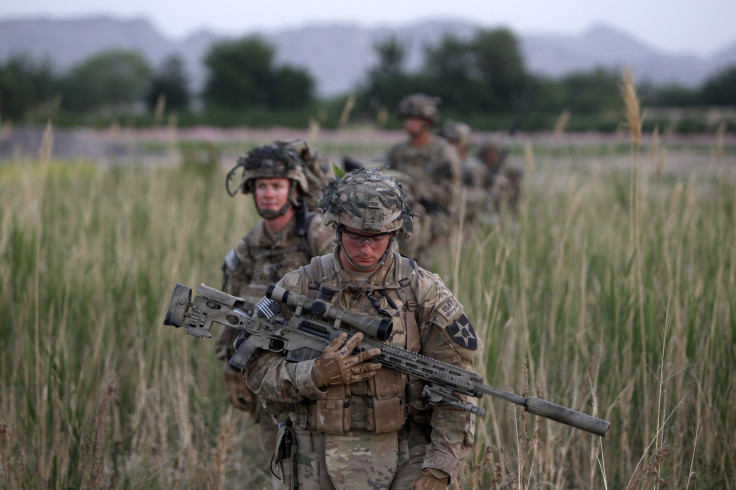Donating PTSD Soldiers' Brains To Science For Research Encouraged By Doctors, Veterans

Doctors and veterans alike have been encouraging soldiers affected by post-traumatic stress disorder to consider donating their brains to science after death to allow for more in-depth study of the condition, the Military Times reported Sunday. PTSD -- often referred to as shell shock in relation to soldiers -- is a condition in which a person who's been in danger continues to exhibit that same fear response in civilian life. The disorder is often difficult to treat, especially given the stigma surrounding it in military circles.
The call for soldiers to commit to donating their brains posthumously comes as the Department of Veteran Affairs' new PTSD brain bank and the Defense Department's brain tissue repository begin testing to look for cures to brain ailments such as Alzheimer's, epilepsy and various forms of physically inflicted brain trauma. "This isn’t just about studying PTSD," said Richard Fournier, a former Navy shopkeeper who has agreed to donate his brain to the VA. "It’s about looking for clues and finding cures for a host of neurological diseases,” he said.
Around 7 percent of people in the United States have or will develop PTSD in their lifetimes, according to the U.S. Department of Veteran Affairs (VA), meaning that 22.2 million people in the U.S. are suffering from it at any given time -- a number that includes veterans and civilians. Soldiers have a higher rate of developing PTSD than civilians, however, and the prevalence of PTSD in soldiers became widely known after World War I, when millions of soldiers returned from trench warfare with mood disorders, depression and even suicidal tendencies.
Soldier, Combat K-9 Fighting PTSD Together http://t.co/SnVywoICpk pic.twitter.com/5i7nR1gRMB
— Tactical Life.com (@TacticalLife1) September 4, 2015Researchers from both the VA and the Defense Department said they are asking for brain donations because dissection of gray matter can teach them far more about neurological disorders than brain scans alone.
The prevalence of PTSD in veterans from recent conflicts has also been relatively high, with the VA reporting that 11 percent of veterans from Operation Iraqi Freedom and 12 percent of veterans from the Gulf War suffered from the disorder.
Despite having existed in scientific vernacular since the early 1900s, very little is understood about the disorder, and it is often treated with a variety of talk therapies and antidepressants.
© Copyright IBTimes 2024. All rights reserved.












